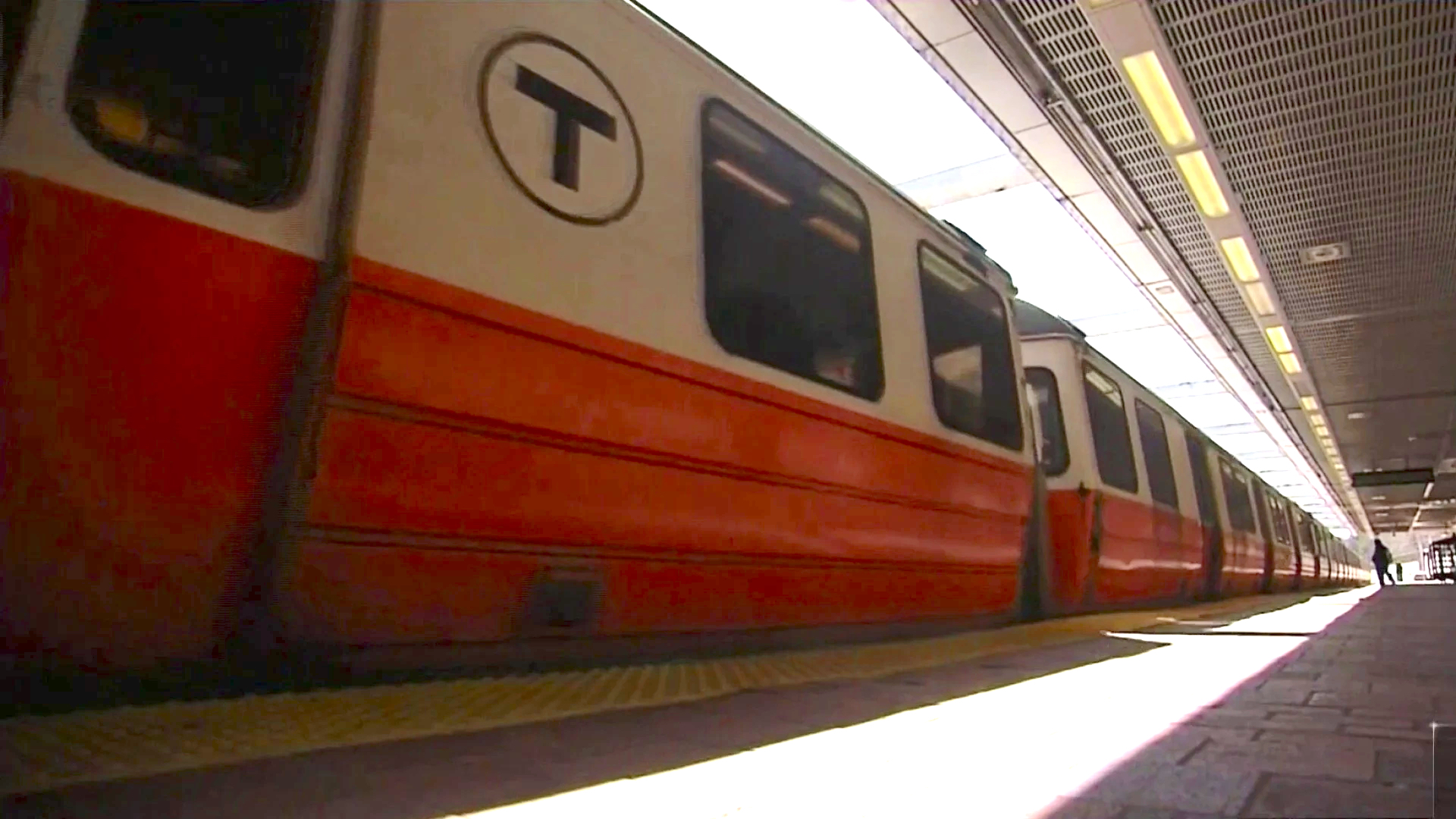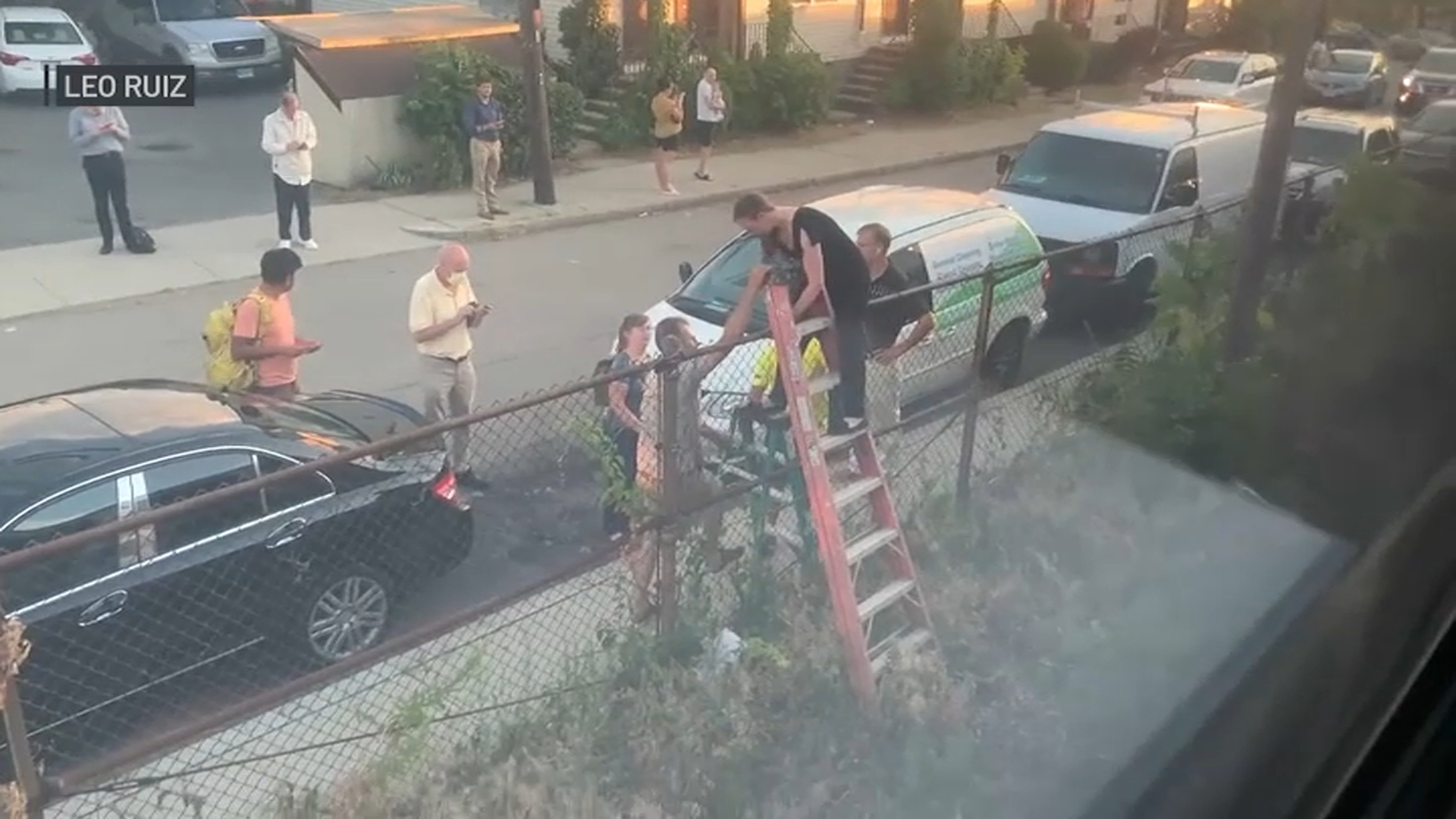The entire MBTA Orange Line will shut down for 30 days in August and September, to be replaced by shuttle buses, as the transit system rushes to update infrastructure on the line, Gov. Charlie Baker said Wednesday.
The shutdown will take place on the problem-plagued train line, which serves nearly 200,000 riders every day, between Aug. 19 and Sept. 18. Along with shuttle bus service — details were still being worked out — the Commuter Rail was being offered as another alternative for riders.
WATCH ANYTIME FOR FREE
>Stream NBC10 Boston news for free, 24/7, wherever you are. |
It's the longest service diversion of an entire line in the T's history, Baker said at a news conference at the Orange Line's Wellington Station. The Orange Line train that caught fire over the Mystic River two weeks ago had just left Wellington Station when the blaze was sparked.
Get updates on what's happening in Boston to your inbox. Sign up for our >News Headlines newsletter.
"None of this stuff that's happened is acceptable, and that's part of the reason why we're going the distance we're going to here," Baker said, addressing a sea of reporters and cameras near the Wellington maintenance yard. "I do believe this will be a major, positive and significant decision for the Orange Line and for the riders over time, but it's going to be a complicated exercise and we accept that."
The work coming during the shutdown will complete infrastructure upgrades that would have taken five years of night and weekend service changes, Baker said.
"We know that any diversion, particularly one like this, will be frustrating to riders," the governor said, calling it "short-term work that can result in long-term benefits in a much shorter timeframe."
Sources first told NBC10 Boston about the Orange Line shutdown on Tuesday night. The MBTA remains under the oversight of federal investigators after a slew of incidents on several lines, including a dragging death on the Red Line, collisions and runaway trains.
During the shutdown, maintenance workers will replace more than two-thirds of a mile of track, including where trains have to operate at reduced speeds, and upgrade signals, MBTA General Manager Steve Poftak said. He and Baker promised better service after the work is completed.
Officials also said that, when service is restored, the "vast majority" of the trains on the tracks will be the new cars that the T has bene rolling out — though not without problems, some of which have required the fleet to be pulled from service.
So far, the T has received 78 out of 152 new Orange Line cars on order, an MBTA representative told NBC10 Boston. The final new Orange Line car is set to be delivered next summer, and the representative noted that each car goes through rigorous testing, including 500 miles being run on a dedicated track in South Boston before passengers can start riding them.
Asked Wednesday how confident he is that the new trains would be able to run error-free on starting Sept. 19, given the host of issues, Poftak said that a battery heating issue has been solved, and pointed to a "robust vehicle-acceptance program."
Poftak said the infrastructure update comes after riders demanded "bold action," and that "part of this shutdown is about not waiting, it is about making the necessary improvements and making them now."
The reaction from mayors along the route, through Malden, Medford, Somerville, downtown Boston and Jamaica Plain, was swift.
"The truth is we’ve been past the point of small fixes for the T for years at this point, and you can ask any commuter," said Boston Mayor Michelle Wu, an Orange Line rider herself.
Wu and incoming Boston Public Schools Superintendent Mary Skipper noted that the shutdown will go into the school year, and affect students who take the train to work as well as staff and families.
"Our staff comes from everywhere. In some areas where schools are, parking is very difficult," Skipper said, noting that the district would be looking to make sure "classrooms are staffed properly."
The impact of the shutdown would be less severe if it ended in August, with work continuing afterward on nights and weekends, said Rick Dimino, the president of A Better City, a nonprofit that supports businesses in the Boston area.
"During the first two weeks of September the public, workers, and thousands of students are coming back to Greater Boston. This is a time to encourage transit use, not shut down a vital rapid transit line," he said in a statement, calling the work necessary but possibly "unnecessarily brutal for both riders and our region."
Businesses near Orange Line stops like Malden Center are concerned.
"It's a huge thing for us," said Dominic Rioles, wine manager at Malden Center Fine Wines. "We have these big, beautiful plate glass windows out the front, it's definitely a draw for people who are coming off the train, we get a lot of business that way. Any decrease in that is concerning for us."
There are countless retailers along the 20 stops of the Orange Line from Malden to Jamaica Plain. And for those communities where the Orange Line is the only nearby T stop, the one-month closure is going to hurt.
"I just feel this is far too abrupt," said Dimino. "I don't think it's fully thought through."
He says business owners should be worried and hopes the closure is reconsidered.
"The Orange Line is a critical rapid transit corridor that has both neighborhood business districts and access to the Back Bay and the downtown," said Dimino.
Get updates on what's happening in Boston to your inbox. Sign up for our News Headlines newsletter.
Earlier Wednesday, the MBTA's board of directors, in a special meeting, unanimously approved spending between $27 million and $37 million on a contract for replacement bus service with A Yankee Line, Inc., which will provide up to 200 shuttle buses at peak hours to replace subway service, on the Orange Line as well as the Green Line.
Poftak told board members the shuttle buses would run free of fares for riders.
The agency had already planned track and signal work on the Orange line, which was originally been set to begin last week but was pushed back.
It's not clear how much the total project will cost once the maintenance price tag is incorporated. An $11.3 billion infrastructure bond bill on Baker's desk makes $400 million available for the MBTA to respond to the Federal Transit Administration's safety directives.
Passengers say they are fed up with all the issues, and even more frustrated the shutdown will wreak havoc on their commute.
"In general, for me, it’s an inconvenience, probably for everybody else as well," MBTA rider Tomas Calachij said. "It usually takes me about an hour, hour and a half just to get to work and home, and with the closure of the train system that’s potentially going to be more than 30 days, it’s going to take double the time for me just to get home and you know just to get back to work."
Malden resident Geovanna De Paula tells NBC10 Boston she may be catching a ride with a friend to school in Boston some mornings.
"It's going to be very chaotic," De Paula said.
De Paula will be competing on the roadways with shuttle buses of commuters who would usually take the T, riders opting to drive instead of using the shuttles, and the usual commuters using their cars.
"It's just going to make me wake up earlier and make it harder for me to get where I need to be," De Paula said.
The Boston Globe first reported that the agency was considering a monthlong shutdown of the line, which would start later this month and stretch into September.
Red Line work also planned
There are also safety upgrades in the works on the Red Line, work that started Monday and is planned again from Aug. 8 through Aug. 11. Shuttles are replacing service between the impacted stations at night during the work.
Overnight Monday into Tuesday, a piece of construction equipment derailed near Quincy Center. The MBTA said there were no injuries, but the derailment caused damage to the third rail. 25 shuttle buses provided alternative service until power was restored at 6:20 a.m. Tuesday.
"At first they said it's probably a seven minute and next thing they say no train and they send an inspector that come say take shuttle bus," Red Line passenger Key Lim said. "They don’t have shuttle bus to start with. They say they have to pull operator from all the other bus to try and get people to drive …. That’s not good.”
Shuttles will continue Wednesday night and Thursday night between JFK/UMass and Braintree along the Red Line. The trains will be back up through the weekend, and then shuttles will resume next week Monday through Thursday nights, starting at 8:45 p.m.



